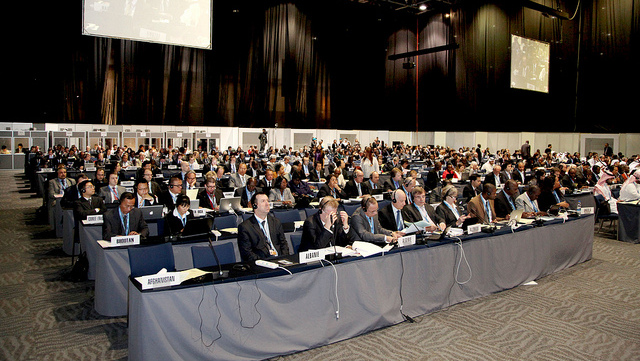SUMMARY
This is AI generated summarization, which may have errors. For context, always refer to the full article.

MANILA, Philippines (UPDATED)- The Philippines joined a number of countries in refusing to sign a telecommunications treaty at the World Conference on International Telecommunications (WCIT) in Dubai on December 14.
Interaksyon reports the National Telecommunications Commission (NTC) Director Edgardo Cabarios read a statement prepared by Undersecretary Louis Casambre of the Information and Communications Technology Office (ICTO), saying that “as the proposed treaty is significantly dissimilar to our position on several key principles, we must at this point reserve the right to further consult with our stakeholders before we decide whether or not to sign this Treaty.”
A December 13 update from the Center for Democracy and Technology (CDT) adds to this, explaining that “an increasing group of treaty skeptics, including Sweden, Kenya, Costa Rica, Japan, and the Philippines… announced that they must engage in further consultations with stakeholders back home and were unlikely to sign on by Friday.”
Additional countries that refused to sign included Australia, the United States, Canada, the United Kingdom, Japan, and a number of other countries.
The treaty was prepared to help maintain technical standards for traditional telecommunications around the world. Revisions proposed at the 2012 WCIT, as revealed by WCITLeaks, would have added declarations that, as Ars Technica summed up, would allow states that are part of the treaty to “have the power to regulate the Internet to promote security, fight spam, and so forth.”
The controversy over the treaty lies in what it implies rather than in any actual powers it gives. As Ars Technica’s analysis explained, “if the world signs on to a treaty that purports to govern the Internet, it will help establish a precedent that the ITU is the appropriate forum for setting Internet standards,” as opposed to non-governmental bodies. – Rappler.com
Add a comment
How does this make you feel?
There are no comments yet. Add your comment to start the conversation.